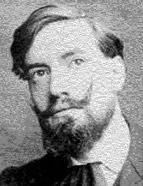

Jaime Cortesão portrayed himself in 1960 as a "poet of action, always ready to exalt the heroic man and to transform the idea into act through this model. (“Prefácio a modo de memórias” ["Preface by way of memoirs"], in O Infante de Sagres [The Prince of Sagres], n/n). A poet, above all. And a politician, from early on.
In 1910, already a doctor with a degree from the Escola Médico-Cirúrgica de Lisboa [Lisbon Medical-Surgical School] (after having studied law in Coimbra and medicine in Oporto), he proposed himself as a member of parliament for the Partido Republicano Português [Portuguese Republican Party]. He did not succeed: the Constituent Assembly of 1911 would not hear the ardent words of this radical republican - with anarchist roots and a Masonic affiliation. He practised medicine only for a brief period, published verses, and found a mediocre position as temporary teacher of History and Literature at the Liceu Rodrigues de Freitas [Rodrigo de Freitas High School] in Oporto, while throwing himself into conquering the literary milieu along with his civic action. The 'Renascença Portuguesa' [‘Portuguese Renaissance], A Águia [The Eagle] (2nd series, with Álvaro Pinto, Teixeira de Pascoaes and Leonardo Coimbra, among others) and the Universidade Popular [Popular University] were connected to this intellectual movement.
History? It was what he taught and disseminated. Indeed, History played a fundamental role in republican ideology. The heroic, long dreamt-of republic relied on history to legitimise itself. It was necessary to prove that the liquidated secular dynasty had corrupted and spoiled nationality, destroying the old and heroic Portugal. Jaime Cortesão ranked within this rhetoric, putting his literary talent at its service: in poetry and tribune, and even in the short stories he published. Political Romanticism and also romantic exaltation in literature. A match. The evocation of the past, at the heart of this exhilarating moment, is prioritised in literary manifestations. He approached the problem of history in the longed-for Portuguese Renaissance from its pedagogical angle - in primary and secondary education and in popular dissemination (to vitalize and propel the People towards heroism) - criticising the methods, programmes and textbooks in use. He stressed the importance of the efforts of the humble in the great national undertakings - the Discoveries - and the benefit to be gained from the "lively and artistic" presentation of the biographies of the heroes. Against the Portugal of the great, and therefore exhilarating moments, the narrative of the period of decadence stood in abhorrent contrast: the Republic needed to become unanimous for its renewal and denounce all tyranny. The history of Portugal seen in black and white. The discoveries were followed by the destruction of wills and a waning of the collective impulse at the hands of Jesuitism. Which had to be fought.
